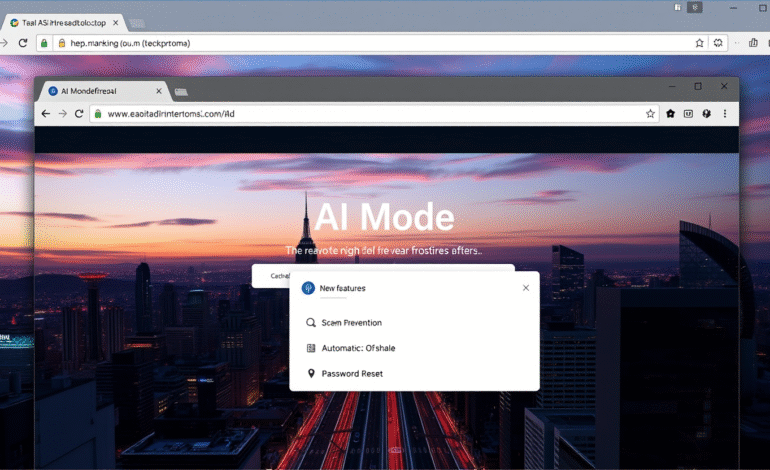Google Unveils Expanded AI Capabilities for Chrome: Gemini Rolls Out to All Desktop Users in U.S., Introduces Agentic Features, and Combat Scams

Google unveiled plans to expand its AI assistant, Gemini, across all desktop platforms in the U.S., following earlier restrictions to Google AI Pro and Google AI Ultra subscribers. The tech giant further announced forthcoming agentic capabilities for Chrome, encompassing features like AI Mode search integration into the address bar, new Gemini functionalities, scam prevention measures, automatic password resets, and more.
Beginning now, U.S. users with English as their language setting can leverage Gemini to simplify complex information from any webpage by clicking on the Gemini icon in the upper right corner of their Chrome window. For instance, you could access a banana bread recipe page and request Gemini to modify it for a gluten-free version.
With the capability to function across multiple tabs, users can now effortlessly compare and summarize information from various websites simultaneously. This could be beneficial when planning a trip, comparing different mattress models during shopping, or organizing numerous tabs for a more streamlined experience.
Soon, Gemini will also facilitate access to previously visited web pages, eliminating the need to sift through browser history to revisit past browsing sessions. Users can now ask questions like “On which site did I see the walnut desk last week?” or “What was that blog I read on back to school shopping?”
Google is also set to strengthen its integration between Gemini in Chrome and other Google apps, such as Calendar, YouTube, and Maps. This will allow users to perform tasks like scheduling meetings, viewing location details, and more without leaving the current page. For example, if you’re seeking a specific spot in a YouTube video, you can ask Gemini to navigate there directly.
Google emphasizes that the AI assistant will soon automate mundane tasks, such as booking hair appointments or ordering weekly groceries. The assistant will navigate to the respective site, add items to your cart, and offer the final action for checkout with your preferred payment method.
The new agentic capabilities are expected to roll out in Chrome over the coming months. Notably, OpenAI introduced Operator, an autonomous AI agent, earlier this year.
Google is additionally integrating its advanced search feature, AI Mode, directly into the Chrome address bar. With AI Mode, users can ask complex questions with follow-ups to delve deeper into topics. For example, instead of searching for “best mattress,” you could type out “I’m a side sleeper with occasional lower back pain, make me a table comparing different mattress types” directly in the address bar. From there, you could ask follow-up questions and continue your search with queries like, “How long do memory foam mattresses typically last?”
This update is slated for release later this month in English within the U.S., with plans to expand to additional countries and languages in the future.
Moreover, the address bar will soon offer the ability to ask questions about the current page, with Chrome suggesting relevant queries based on the page’s context to initiate a search through the address bar. Google promises users will receive a helpful AI Overview and the option to ask follow-up questions using AI Mode.
Google also disclosed plans to use its Gemini Nano model to detect and safeguard against scams, such as fake virus alerts and fraudulent giveaways. These scams often impersonate trusted brands and employ generative AI to create persuasive phishing attempts, according to Google.
Lastly, Google announced it will utilize AI to help users secure compromised passwords with a single click on supported sites, like Coursera, Spotify, Duolingo, H&M, and more. If Chrome warns you that your password was exposed in a data breach, you can allow it to create and save a new one for you.






